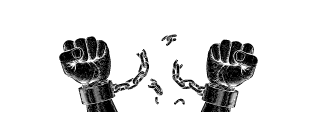12 Predictions: How COVID-19 Will Change the Legal Profession
At this point, who is NOT sick of 2020?
This year has been full of ups and (way too many) downs; many of the latter a consequence of the COVID-19 pandemic. One thing we are sure of: post-COVID life won’t parallel pre-COVID. How will COVID change corporate and legal, moving forward?
Because we sing of the 12 days of Christmas (for those of us that celebrate it), here are 12 substantial changes we believe are “more likely than not”:
1. AI will continue advances in society, and “The Law” will need to assess AI culpability, i.e., who is held accountable with a computer makes a decision?
2. Countries will continue to turn “inward”: they will protect national champions and markets, raise tariffs, limit immigration, and impose stiffer regulatory burdens on international trade and investment.
3. Supply chains will continue to strain and fracture, as international trade becomes more complicated (due to both commercial challenges and regulatory impediments). International trade experience will become more valuable (and the consequences of inadequate management will become increasingly apparent).
4. As the US workforce ages and future pandemics ensure, healthcare will play a bigger role in legal decisions, both in business and elsewhere.
5. Childcare requirements due to COVID will lead to employee absenteeism and attrition, in turn causing corporations to experience decreasing efficiency and increasing error rates. Recent mass dismissals in some sectors due to the recent downturn will only exacerbate these problems.
6. Sales and marketing departments will need to make up for lost time, and pressure will intensify to increase sales at any cost. As a consequence, ethical norms will be stretched and we will see an increase in violations of anti-corruption laws. Due to natural lag time between violation and discovery/investigation/prosecution, however, we’ll only see an uptick in resultant anti-corruption prosecutions over the medium-term.
7. Much like the USA’s Foreign Corrupt Practices Act in the corruption context, the European Union’s data privacy regime (the GDPR) will become a universal benchmark in data privacy expectations. Attorneys will need to manage tension between data privacy requirements and corporate needs.
8. As the CDC has accelerated its approval processes with eligible vaccines, so government regulators may focus more on streamlining process to enable quicker end results.
9. Due to corporate headcount cuts, rising taxes, and reduced revenues, companies will have a reduced ability to self-audit; they will use attorneys to focus on higher-value audits, and will reduce the frequency and scope (and resultant cost) of internal audits.
10. In search of cost-benefit advantages, legal departments will continue to increase outsourcing legal services…and sometimes the entire department! In parallel, many types of legal services will continue to transition from hourly rates to subscription-based services.
11. The distinction of “in-house” versus “external” will increasingly become moot, as both employees and contractors will increasingly be working from home. Corporate culture will become less palpable due to these extenuating distances.
12. The goal of most business attorneys will be to provide the quality of in-house counsel (namely, a deep and nuanced understanding of the company) with the speed and expertise of external counsel. This is how The Wallenstein Law Group has always operated, so we feel like we’re ahead of the curve.
It remains to be seen whether COVID represents a legal and corporate inflection point, a paradigm shift, or merely an accelerant to underlying trends. In any case, and irrespective of the nature of your business’s changing legal needs, The Wallenstein Law Group is here to help. Contact us today!







